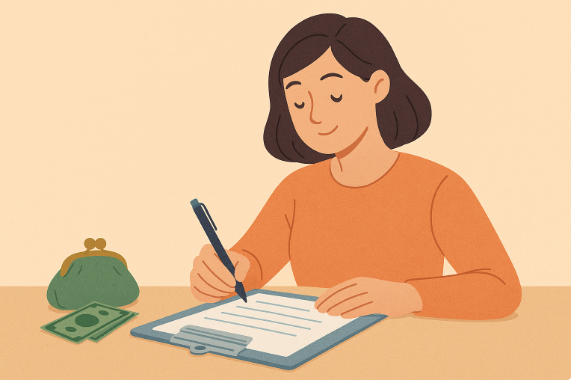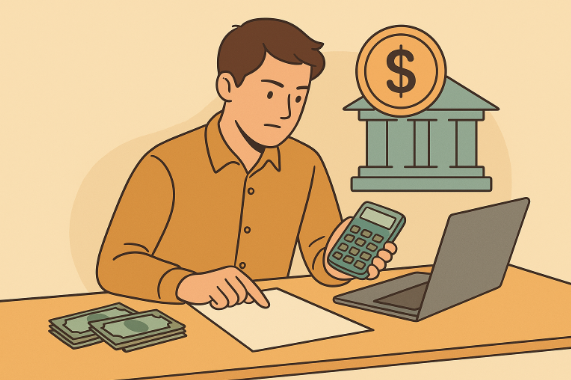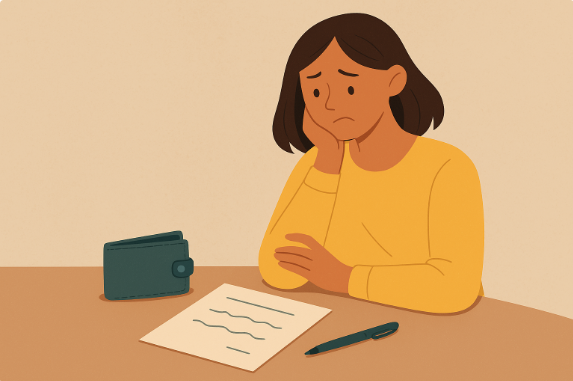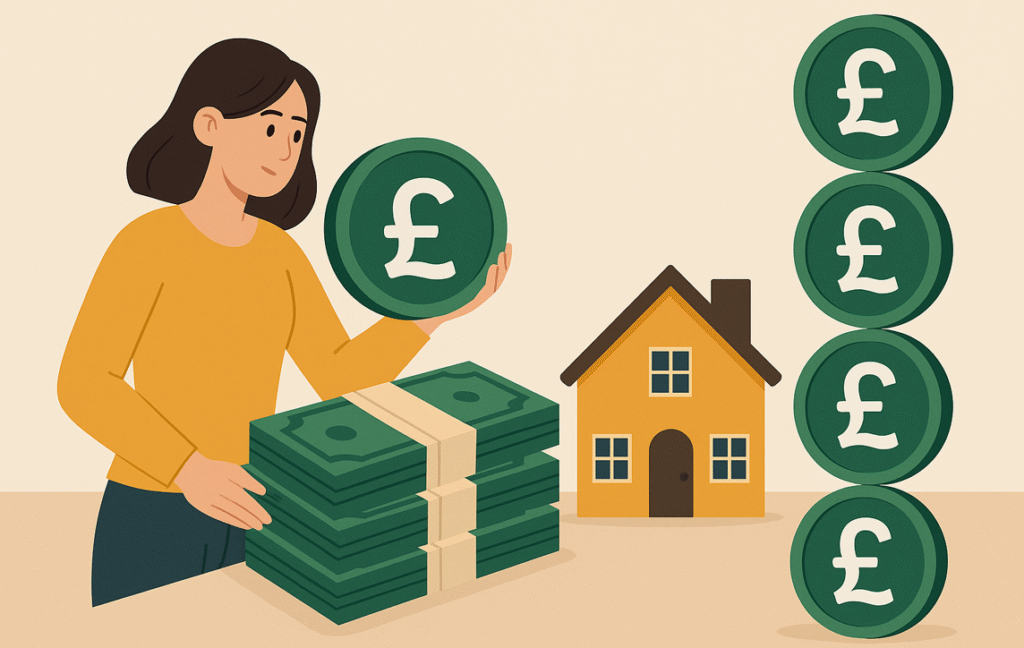Introduction
When you first claim Universal Credit, it can take around five weeks before your first payment arrives. For many people, that’s a long time to wait when you still need to pay rent, buy food, or cover daily living costs. To bridge that gap, you can apply for an advance payment. But the big question is: how many times can you get an advance on Universal Credit? The answer depends on your circumstances, how much you’ve already borrowed, and whether you can manage the repayments. Let’s break it down in simple terms.
What Is an Advance on Universal Credit and How Does It Work?
An advance on Universal Credit is essentially an early payment of your benefit. It allows you to access some (or all) of your first Universal Credit entitlement before your official payday.
-
You can request an advance if you’re in financial hardship.
-
The amount you borrow will be deducted automatically from future Universal Credit payments.
-
Repayments are spread over a period of up to 24 months.
As Citizens Advice explains: “An advance is not extra money – it’s an early payment of the benefit you’re due.”
How Many Times Can You Get an Advance on Universal Credit?
You can usually apply for one advance payment per Universal Credit claim.
However:
-
You may be able to request a second advance if you didn’t take the full amount the first time.
-
The total borrowed can’t be more than your first full month’s Universal Credit entitlement.
-
If you already owe an advance, you won’t normally be able to borrow more until the first is repaid.
So, while the system is flexible, the short answer is: you can’t take unlimited advances.
What Are the Eligibility Rules for a Universal Credit Advance?

To qualify for an advance:
-
You must have made a new Universal Credit claim.
-
Your claim must have been verified (identity, income, and housing checks completed).
-
You must show you cannot manage until your first payment.
You may not qualify if:
-
You’ve already taken the maximum advance.
-
You left work voluntarily and have no hardship.
-
You have alternative support available (like savings or redundancy pay).
How Much Can You Borrow with a Universal Credit Advance?
The amount you can borrow depends on your standard allowance and any additional elements.
| Claim Type | Minimum Advance | Maximum Advance |
|---|---|---|
| Single, under 25 | £100 | ~£292 |
| Single, 25+ | £100 | ~£368 |
| Couple, under 25 | £100 | ~£458 |
| Couple, 25+ | £100 | ~£578 |
👉 The DWP decides the final amount based on your claim details.
How Do You Repay a Universal Credit Advance?

Repayments start from your first Universal Credit payment. The DWP automatically deducts the agreed amount until the debt is cleared.
-
Standard repayment period: up to 24 months.
-
Early repayments: allowed if you want to clear the debt quicker.
-
Struggling with repayments? You can request a reduction, pause, or extension.
The Money Advice Trust warns:
“Always consider affordability before taking an advance – it reduces your future income.”
Step-by-Step Guide: How Do You Apply for an Advance Payment on Universal Credit?
Can You Apply Through Your Online Universal Credit Account?
Yes, and this is the quickest way.
-
Log into your Universal Credit account.
-
Select “Apply for an advance”.
-
Enter how much you need (up to the maximum allowed).
-
Confirm repayment details.
-
Submit your request.
If approved, the money usually arrives within 1–3 working days.
Can You Apply for an Advance by Phone?
Yes. If you don’t have online access:
-
Call the Universal Credit helpline: 0800 328 5644.
-
Provide your National Insurance number and claim details.
-
Request the advance amount and confirm repayment terms.
What Happens After You Apply for an Advance?
You can’t usually get a second full advance — you can only top up what you missed the first time, and if you’ve already had the maximum, you’ll need to manage with other support until repayments are made.
-
The DWP will check your claim.
-
If approved, money is paid into your bank account.
-
Repayments will begin from your first Universal Credit payment.
What Happens If You Need Another Advance on Universal Credit?

-
If you didn’t borrow the full amount, you may apply for the remaining balance.
-
If you’ve already borrowed the maximum, you’ll need to wait until repayments reduce your debt.
-
In very exceptional cases, the Department of Work and Pensions (DWP) may consider additional support.
What Are the Pros and Cons of Taking a Universal Credit Advance?
Pros
-
Quick access to cash.
-
Helps cover essential bills.
-
Flexible repayment over 24 months.
Cons
-
Reduces your future payments.
-
Can cause budgeting problems later.
-
Not always enough to cover larger expenses.
As Martin Lewis (MoneySavingExpert) often says: “An advance should be a lifeline, not a lifestyle.”
What Alternatives Are There to a Universal Credit Advance?
If you can’t get another advance, consider:
-
Budgeting Advances (for furniture, moving costs, or work-related needs).
-
Local council welfare schemes (varies by area).
-
Charities and credit unions offering affordable loans or grants.
Can You Get a Universal Credit Advance While Appealing a Decision?
If you’ve asked for a mandatory reconsideration or you’re appealing a Universal Credit decision, you may still be able to get an advance — but only if your claim is active and accepted.
-
✅ If your claim has been approved but you’re appealing part of it (e.g. housing element, disability element), you can still apply for an advance.
-
❌ If your claim has been refused entirely, you can’t get an advance because there’s no payment to borrow against.
Can Couples Apply for More Than One Advance on the Same Claim?
Universal Credit treats couples (partners living together) as making one joint claim. That means:
-
There is one claim, one advance, and one repayment plan.
-
Even though both partners are named on the claim, the system won’t give two separate advances.
-
However, the maximum advance amount for couples is higher than for single claimants — because it’s based on your joint allowance.
How Does Taking an Advance Affect Future Universal Credit Increases?
An advance doesn’t affect the amount of Universal Credit you’re entitled to — only the timing of your UC payments.
-
Your future monthly payments will be reduced automatically to pay back the advance.
-
If Universal Credit rates go up (e.g. due to inflation or government increases), you’ll still get the higher rate — but deductions for your advance will continue until it’s cleared.
-
Advances don’t lower your entitlement; they just spread the repayment across future months.
Conclusion: How Many Times Can You Get an Advance on Universal Credit?
So, how many times can you get an advance on Universal Credit? In most cases, you can get one advance per claim, although you may top it up if you didn’t take the full amount the first time. The key thing to remember is that an advance is a loan against your benefit – it must be repaid.
If you’re struggling financially, explore other support like budgeting advances, council schemes, or independent advice services.
FAQs
How many advance payments can I get on Universal Credit?
You can usually get one advance per new claim, with a possible top-up if you didn’t take the full amount.
How many times a year can you get an advance payment?
You can only get an advance once per claim, not every year.
Which reasons are accepted for advance payment?
You can get an advance if you can’t manage financially until your first Universal Credit payment arrives.
Can I get 2 budgeting advances?
Yes, but only if your first budgeting advance is repaid or nearly cleared.
What is the maximum advance payment?
The maximum is your first month’s full Universal Credit entitlement.

I’m Adam Milne, a business writer and co-author at UKBusinessMag.co.uk. I’m passionate about simplifying complex topics—whether it’s tax, startup strategy, or digital marketing—so that entrepreneurs can take action with confidence. With years of experience in small business consultancy, I bring a practical perspective to every piece I write, helping readers turn ideas into results.



